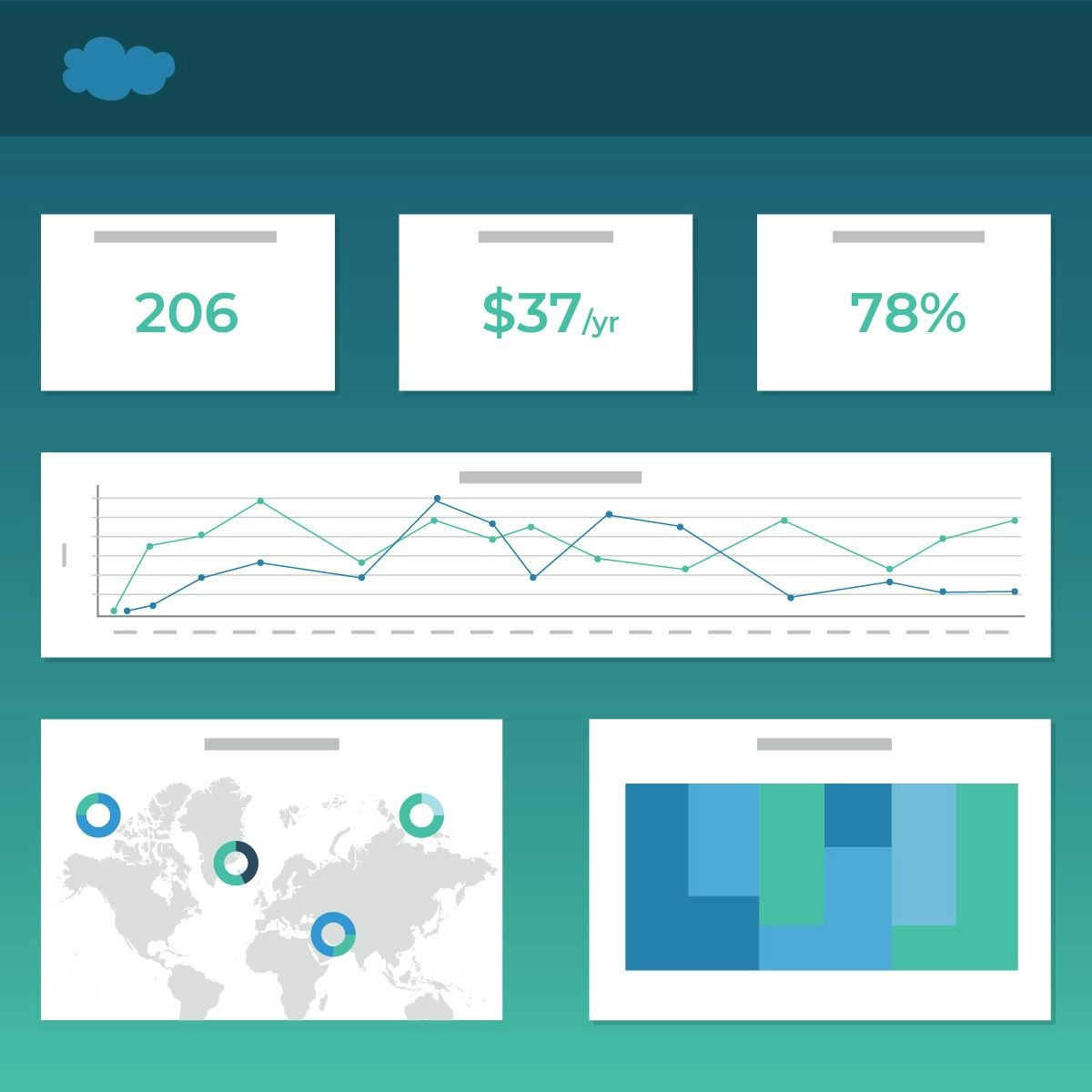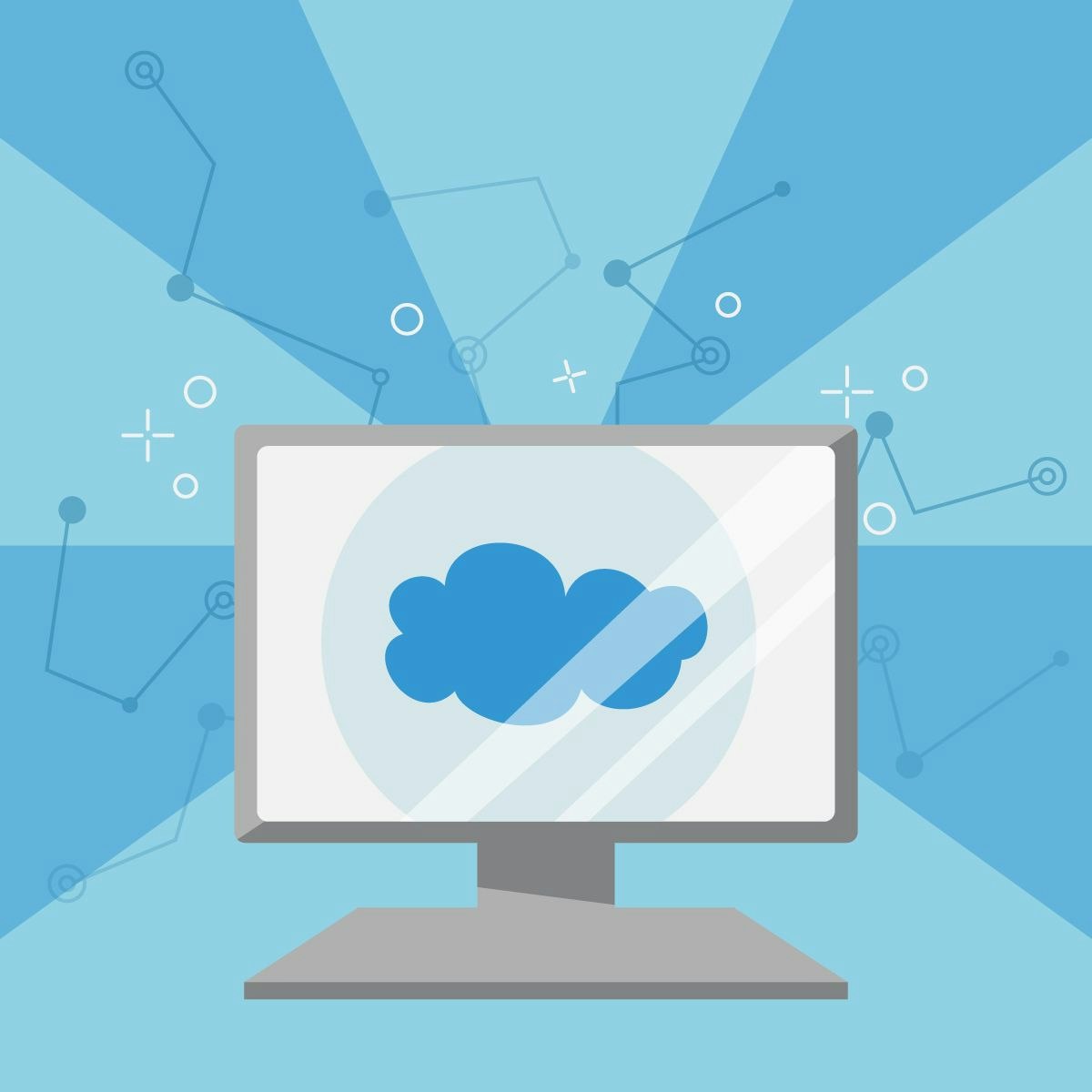Salesforce Administrator
Salesforce Administrator: A Comprehensive Career Guide
A Salesforce Administrator plays a vital role in helping organizations leverage the power of the world's leading Customer Relationship Management (CRM) platform, Salesforce. In essence, they are the trusted advisors and technical experts who configure, manage, and optimize the Salesforce environment to meet specific business needs. Think of them as the bridge between business processes and the technology that supports them, ensuring users can work efficiently and the platform delivers maximum value.
Working as a Salesforce Administrator can be engaging for those who enjoy problem-solving, continuous learning, and making a tangible impact. You'll often find yourself designing clever solutions to streamline workflows, building insightful reports that guide business decisions, and empowering users through training and support. The role combines technical configuration with strategic thinking, offering a dynamic and often rewarding career path in the ever-expanding tech landscape.
Introduction to Salesforce Administrator
What is a Salesforce Administrator?
A Salesforce Administrator, often called a Salesforce Admin, is a professional responsible for managing and maintaining an organization's Salesforce instance. Salesforce itself is a powerful cloud-based CRM platform that helps companies manage customer interactions, sales processes, marketing campaigns, service requests, and much more. The Admin ensures this platform runs smoothly and is tailored to the unique needs of the business and its users.
The core purpose of a Salesforce Admin is to maximize the effectiveness and efficiency of the Salesforce platform for their organization. They handle tasks like setting up new users, customizing the platform's layout and functionality (often using declarative, "clicks-not-code" tools), managing data quality, ensuring security, and building reports and dashboards to track key metrics. They act as the go-to expert for users needing support or training.
Essentially, a Salesforce Admin empowers their colleagues to use Salesforce effectively, thereby improving productivity, driving user adoption, and helping the organization achieve its business goals. They are crucial for maintaining the health and relevance of the Salesforce implementation.
For those unfamiliar with CRM systems, imagine a highly sophisticated digital filing cabinet combined with a powerful communication and analysis tool. A CRM like Salesforce centralizes all information about customers, leads, sales opportunities, and support cases. A Salesforce Admin is like the master organizer and customizer of this system, ensuring everyone can find what they need, automate repetitive tasks, and get insights from the data stored within.
Who Hires Salesforce Administrators?
Salesforce Administrators are in demand across a vast array of industries because Salesforce itself is used by companies of all sizes, from small businesses to large multinational corporations. Key sectors employing Salesforce Admins include technology, financial services, healthcare, retail, manufacturing, non-profits, and higher education. Any organization using Salesforce to manage relationships with customers, donors, partners, or constituents likely needs an administrator.
Within these organizations, Admins might work in IT departments, sales operations teams, marketing departments, or even dedicated CRM teams. In smaller companies, an Admin might wear many hats, handling a wide range of responsibilities. In larger enterprises, there might be teams of Admins, often specializing in specific areas like Sales Cloud, Service Cloud, security, or analytics.
Consulting firms, also known as System Integrators (SIs) or Salesforce Partners, are also major employers of Salesforce Administrators, often in roles labeled as Functional Consultants. These professionals help other companies implement and optimize their Salesforce instances. This offers a different dynamic, involving work with multiple clients and diverse business challenges.
A Brief History of Salesforce
Salesforce was founded in 1999 with a vision to revolutionize the software industry by delivering enterprise applications via the internet – a concept now known as Software-as-a-Service (SaaS) and cloud computing. This was a radical departure from the traditional model of installing complex software on individual company servers. Their initial focus was on providing a CRM solution that was accessible, affordable, and easy to use.
The company rapidly gained traction, popularizing the SaaS model and pushing the "No Software" mantra. Over the years, Salesforce expanded its offerings beyond basic CRM, introducing platforms for sales (Sales Cloud), customer service (Service Cloud), marketing automation (Marketing Cloud, Pardot), e-commerce (Commerce Cloud), analytics (Tableau, CRM Analytics), integration (MuleSoft), and collaboration (Slack).
A key part of Salesforce's growth has been its AppExchange, an online marketplace for third-party applications built on the Salesforce platform, and Trailhead, its free online learning platform. This ecosystem fostered innovation and created a massive demand for skilled professionals, including Administrators, Developers, Consultants, and Architects, to manage and extend the platform's capabilities, solidifying Salesforce's position as a dominant force in the business technology landscape.
Roles and Responsibilities
User Management and Security
A fundamental responsibility of a Salesforce Administrator is managing users and ensuring the security of the organization's data within the platform. This involves creating new user accounts, deactivating accounts for departing employees, and assigning appropriate access levels through profiles and permission sets. The goal is to ensure users have access only to the data and functionality necessary for their roles.
Admins configure security settings like password policies, session settings, and multi-factor authentication to protect against unauthorized access. They also manage the sharing model, using tools like Organization-Wide Defaults (OWDs), role hierarchies, and sharing rules to control record visibility. This ensures that sensitive data is protected while allowing collaboration where needed.
Maintaining security is an ongoing process. Admins regularly review user access, conduct security health checks, and stay updated on Salesforce security best practices and new features. They collaborate closely with IT and compliance teams to ensure the Salesforce environment adheres to company policies and relevant regulations.
Workflow Automation and Process Optimization
Salesforce Administrators play a key role in automating business processes to improve efficiency and reduce manual effort. They utilize declarative tools like Flow Builder to create automated workflows that can trigger actions based on specific criteria. Examples include automatically sending email alerts, updating records, creating tasks, or routing approvals.
Process optimization involves analyzing existing business workflows and identifying opportunities for improvement using Salesforce features. Admins work with stakeholders to understand their processes, map them out, and then configure Salesforce to support or enhance them. This might involve customizing page layouts, creating validation rules to ensure data accuracy, or implementing approval processes for things like discounts or expenses.
By automating routine tasks and streamlining complex processes, Admins free up users' time to focus on higher-value activities. This boosts productivity, improves data consistency, and ensures that business rules are consistently enforced across the organization. Understanding how to effectively design and implement automation is a critical skill for any Salesforce Admin.
Think of workflow automation like setting up a series of dominoes. An Admin sets up the trigger (the first domino falling, e.g., a sales deal marked as "Closed Won") and the subsequent actions (the other dominoes falling, e.g., sending a confirmation email, creating a task for the fulfillment team, updating the account status). Flow Builder is the tool Admins use to design these automated sequences without writing code.
These courses provide excellent foundations and advanced techniques for Salesforce automation tools.
Data Management
Maintaining high-quality data is crucial for any CRM system, and Salesforce Administrators are central to this effort. They are responsible for tasks related to data migration, ensuring data accuracy, and maintaining overall data health. This includes importing data from other systems, cleaning up duplicate records, and ensuring data consistency across the platform.
Admins often use tools like Data Loader or built-in import wizards to manage bulk data operations. They implement validation rules to enforce data entry standards and create custom fields or modify existing ones to capture necessary information accurately. Regular data quality checks and cleansing initiatives are often part of their routine.
Effective data management ensures that reports are accurate, users trust the system, and business decisions are based on reliable information. Admins work to establish data governance policies and train users on best practices for data entry to maintain quality over time. Poor data quality can significantly undermine the value of a CRM system.
For those looking to deepen their understanding of handling data within Salesforce, this book provides valuable insights, particularly concerning migrations and integrations which heavily rely on data quality.
Reporting and Dashboards
Salesforce Administrators are responsible for creating reports and dashboards that provide valuable insights into business performance. They work with stakeholders to understand key metrics and reporting needs, then use Salesforce's reporting tools to build visualizations that track progress towards goals.
This involves creating custom report types, building complex report logic using filters and groupings, and designing visually appealing dashboards that consolidate key information at a glance. Admins ensure that users have access to the reports and dashboards relevant to their roles and that the underlying data is accurate.
Well-designed reports and dashboards enable data-driven decision-making across the organization. Sales teams can track pipeline health, marketing can measure campaign effectiveness, and service teams can monitor case resolution times. Admins often train users on how to create their own reports or interpret existing ones, empowering them to leverage data effectively.
These courses cover the essentials of creating impactful reports and dashboards in Salesforce.
Salesforce Administrator vs. Related Roles
Salesforce Administrator vs. Salesforce Developer
While both Salesforce Administrators and Salesforce Developers work on the Salesforce platform, their focus and methods differ significantly. Admins primarily use declarative tools – the point-and-click configuration options within Salesforce – to customize the platform, automate processes, manage users, and build reports. Their strength lies in leveraging the platform's built-in capabilities effectively.
Salesforce Developers, on the other hand, specialize in programmatic solutions. They write custom code using languages like Apex (Salesforce's proprietary language) and JavaScript (for front-end components like Lightning Web Components). Developers are brought in when complex business requirements cannot be met through standard configuration or declarative automation alone.
Think of it like building with LEGOs versus building with raw materials. An Admin is an expert at using the existing LEGO bricks (standard features and declarative tools) in creative ways to build structures (solutions). A Developer can create entirely new types of bricks or complex mechanisms (custom code) when the standard LEGO set isn't sufficient. Both roles are crucial, but Admins focus on configuration ("clicks"), while Developers focus on customization ("code").
Salesforce Administrator vs. Business Analyst
The roles of Salesforce Administrator and Business Analyst (BA) often overlap, especially in smaller organizations, but they have distinct primary functions. A Salesforce Admin's main focus is on the technical implementation and maintenance of the Salesforce platform – configuring features, managing users, ensuring data quality, and building reports.
A Business Analyst, conversely, focuses more on understanding and documenting business needs and processes. They act as a bridge between business stakeholders and the technical team (which might include Admins and Developers). BAs gather requirements, analyze processes, identify pain points, and translate business needs into functional specifications that the technical team can implement.
While an Admin needs strong business analysis skills to understand requirements before configuring solutions, their core responsibility lies in the technical execution within Salesforce. A BA's core responsibility lies in the analysis and definition of the requirements themselves, often before any technical solution is built. In larger projects, BAs and Admins work closely together, with the BA defining *what* needs to be done and *why*, and the Admin figuring out *how* to do it within Salesforce.
Overlap with CRM Manager and Other Roles
The Salesforce Administrator role can sometimes overlap with positions like CRM Manager or Sales Operations Specialist, particularly in smaller companies. A CRM Manager often has a broader strategic focus, overseeing the overall CRM strategy, user adoption initiatives, and potentially managing a team of Admins or specialists. While they might perform some admin tasks, their scope is typically wider than day-to-day configuration.
Sales Operations roles often involve using Salesforce extensively for reporting, forecasting, territory management, and process optimization specifically within the sales domain. A Sales Ops professional might perform many tasks similar to an Admin but with a specific focus on supporting the sales team's efficiency and effectiveness.
In some environments, an experienced Admin might evolve into a role that blends administration with business analysis and project management, effectively acting as a Salesforce Product Owner for a specific team or the entire organization. The key takeaway is that while the core Admin function focuses on platform configuration and maintenance, the specific responsibilities can vary significantly based on the company's size, structure, and needs.
Core Technical Skills
Proficiency in Salesforce Interfaces
A fundamental skill for any Salesforce Administrator is deep familiarity with the Salesforce user interfaces, primarily the modern Salesforce Lightning Experience. This involves understanding how to navigate the system efficiently, customize page layouts, build apps using the Lightning App Builder, and configure various standard and custom objects.
While some organizations might still use the older Salesforce Classic interface, proficiency in Lightning is essential for current and future roles. Admins need to know how to leverage Lightning-specific features like dynamic forms, actions, and components to create intuitive and productive user experiences. They should also be comfortable guiding users through the interface and troubleshooting navigation issues.
Understanding the nuances of both interfaces can be beneficial, especially during migrations or in environments supporting both. However, mastering the Lightning Experience is paramount for building modern, efficient solutions on the Salesforce platform.
These courses offer excellent introductions and deep dives into the Salesforce Lightning interface.
Data Modeling and Object Relationships
Understanding how data is structured within Salesforce is crucial for an Admin. This involves grasping the concept of objects (standard objects like Accounts, Contacts, Opportunities, and custom objects created for specific business needs), fields (the individual data points within an object), and record types (used to offer different processes and page layouts for the same object).
A key aspect is understanding object relationships – how different objects are connected. Salesforce uses relationship types like lookup (a loose link) and master-detail (a tighter link affecting security and deletion). Admins need to know when to use each type, how relationships impact reporting, and how to design a data model that accurately reflects business processes while remaining scalable.
Think of objects like spreadsheets (e.g., one for Customers, one for Orders). Fields are the columns in the spreadsheet (e.g., Customer Name, Order Date). Relationships are the links between spreadsheets (e.g., linking an Order back to the specific Customer who placed it). A good Admin designs this structure logically so data is easy to manage and report on.
Automation Tools: Validation Rules and Processes
Salesforce Administrators leverage various declarative tools to automate processes and enforce data quality without writing code. Validation rules are formulas that prevent users from saving records if certain criteria aren't met, ensuring data integrity (e.g., ensuring a "Close Date" is always in the future for an open Opportunity).
Approval processes automate how records get approved, defining steps, criteria, and assigned approvers (e.g., requiring manager approval for discounts over 15%). Flow Builder is the primary tool for more complex automation, allowing Admins to design multi-step processes that update records, send emails, create tasks, interact with users, and even call external systems.
Mastering these tools – understanding their capabilities, limitations, and best practices for implementation – is essential for an Admin to effectively streamline business operations, enforce standards, and build efficient solutions within Salesforce. Proficiency in Flow Builder, in particular, is increasingly critical.
Integration Basics
While deep integration development often falls to Salesforce Developers, Administrators should possess a foundational understanding of how Salesforce connects with other systems. This includes knowing what APIs (Application Programming Interfaces) are and how they enable different software applications to communicate and exchange data.
Admins should be familiar with common integration scenarios, such as connecting Salesforce to marketing automation platforms, ERP systems, or customer support tools. They might be involved in configuring pre-built connectors or using middleware platforms (like MuleSoft, also owned by Salesforce) that facilitate integrations.
Understanding basic integration concepts helps Admins troubleshoot data flow issues between systems, participate in discussions about integration strategy, and manage user permissions related to integrated applications. While they may not write integration code, knowing the possibilities and potential challenges is valuable.
These courses provide insights into connecting Salesforce with other systems.
Career Progression Pathways
Entry Points and Early Career
Entering the Salesforce ecosystem often begins with roles like Junior Salesforce Administrator, Sales Operations Analyst, or even customer support roles within companies using Salesforce. Internships focused on Salesforce or CRM can also provide a valuable entry point. Many individuals transition into an Admin role after using Salesforce extensively in another capacity and demonstrating an aptitude for the platform – sometimes referred to as the "Accidental Admin" path.
Early career roles typically focus on foundational tasks: user setup and support, basic configuration (like adding fields or adjusting page layouts), data import/export, and creating simple reports and dashboards. The emphasis is on learning the core platform features, understanding business processes, and developing problem-solving skills under the guidance of more senior team members.
Gaining the Salesforce Certified Administrator credential is often a key milestone for solidifying an entry-level position or advancing early in one's career. Building practical experience through hands-on projects (even in personal developer orgs) is also crucial.
This course is a great starting point for understanding career paths and necessary certifications.
Mid-Career Transitions
Individuals often transition into Salesforce Administrator roles mid-career from adjacent fields like IT support, database administration, business analysis, project coordination, or operations management. Skills gained in these areas – such as technical troubleshooting, data handling, process analysis, and stakeholder communication – are highly transferable to the Admin role.
For those pivoting, the key is often demonstrating Salesforce-specific knowledge alongside their existing experience. This usually involves self-study (often using resources like Salesforce Trailhead), potentially taking online courses, and achieving the Salesforce Certified Administrator certification. Highlighting transferable skills on resumes and during interviews is essential.
Making a career change can feel daunting, but the Salesforce community is known for being supportive. Many successful Admins started in different fields. Focusing on foundational knowledge, gaining hands-on practice, and networking within the community can significantly smooth the transition.
Advanced Roles and Specialization
Experienced Salesforce Administrators have numerous pathways for advancement and specialization. One common route is towards becoming a Salesforce Consultant, working for a Salesforce partner (SI) to help various clients implement and optimize Salesforce. This often involves deeper specialization in specific Salesforce clouds (Sales, Service, Marketing, etc.) or industries.
Another advanced path is towards Salesforce Architecture. A Salesforce Solution Architect designs high-level solutions, ensuring they are scalable, maintainable, and align with business strategy. A Technical Architect focuses more on the technical design, performance, security, and integration aspects of complex implementations. These roles typically require deep platform knowledge and multiple certifications.
Admins can also specialize within an end-user organization, becoming experts in areas like CRM Analytics (formerly Tableau CRM), CPQ (Configure, Price, Quote), or specific industry clouds (like Health Cloud or Financial Services Cloud). Deepening expertise in Flow automation or security management are other common specializations.
These advanced roles often require additional certifications beyond the basic Administrator credential.
Leadership Opportunities
With significant experience and strategic insight, Salesforce Administrators can move into leadership positions. Roles like CRM Manager, Director of Sales Operations, or Head of Business Systems often oversee the entire CRM strategy and manage teams of Admins, Developers, and Analysts.
These leadership roles require not only deep Salesforce knowledge but also strong management skills, strategic thinking, budget management experience, and the ability to align CRM initiatives with broader organizational goals. They involve working closely with senior executives and driving user adoption and ROI from the Salesforce investment.
Some experienced professionals may also choose to start their own Salesforce consulting practices or move into product management roles, guiding the development of Salesforce-related products or features either within Salesforce itself or at ISV (Independent Software Vendor) partner companies.
Formal Education Preparation
Relevant Undergraduate Degrees
While a specific degree is not always required to become a Salesforce Administrator, certain fields of study provide a strong foundation. Degrees in Management Information Systems (MIS), Business Information Technology (BIT), Computer Information Systems (CIS), or general Business Administration often cover relevant concepts like database management, business process analysis, project management, and information systems strategy.
Coursework in these programs often aligns well with the skills needed for a Salesforce Admin role. Understanding how businesses operate, how information flows, and how technology can solve business problems are all valuable assets. A technical background (like Computer Science) can also be beneficial, though not strictly necessary, especially given the declarative nature of much Admin work.
Ultimately, practical skills and demonstrated platform knowledge often outweigh a specific degree type in the hiring process. However, a relevant degree can provide a structured learning path and signal foundational business and technical understanding to potential employers.
Capstone Projects and Internships
University students can significantly enhance their readiness for a Salesforce career through practical experience. Capstone projects that involve designing or implementing solutions using a CRM system, even a simulated one, provide valuable hands-on practice. Working on a project that requires requirement gathering, configuration, data management, and reporting directly mirrors the tasks of a Salesforce Admin.
Internships with companies that use Salesforce are perhaps the most direct way to gain relevant experience. An internship might involve assisting current Admins, helping with user support, cleaning data, building reports, or contributing to small configuration tasks. This provides real-world exposure and valuable networking opportunities.
Even if a formal Salesforce internship isn't available, projects involving data analysis, process mapping, or database management can build transferable skills. Documenting these projects and highlighting the relevant experience gained is crucial for students aiming for a Salesforce role after graduation.
This capstone course provides an example of integrating skills learned across multiple Salesforce areas.
University Partnerships and Programs
Some universities have established partnerships or specific programs related to Salesforce and the broader CRM ecosystem. These might include specialized courses, access to Salesforce learning resources, guest lectures from industry professionals, or connections to internship and job opportunities within the Salesforce network.
Investigating whether your university or potential universities offer such programs can be beneficial. Participating in university clubs related to technology, business systems, or consulting can also provide exposure and networking opportunities relevant to a Salesforce career.
Salesforce itself has academic initiatives aimed at integrating CRM and cloud computing skills into university curricula. Checking for programs affiliated with Salesforce Academic Alliance or similar initiatives can provide targeted learning pathways.
Graduate-Level Specializations
While not typically required for an entry-level Salesforce Administrator role, a graduate degree can be advantageous for career advancement, particularly towards leadership or highly specialized roles. Master's degrees in Information Systems Management, Business Analytics, Data Science, or an MBA with a technology focus can deepen strategic understanding and analytical skills.
Graduate programs might offer specializations or coursework directly related to CRM strategy, enterprise systems implementation, data architecture, or advanced analytics, all highly relevant to senior Salesforce roles like Solution Architect or CRM Manager. These programs often involve significant project work or research that can further build expertise.
For most aspiring Admins, however, focusing on certifications and practical experience is usually the more direct path. A graduate degree becomes more relevant for those aiming for top-tier strategic or architectural positions later in their careers.
Independent Learning Strategies
Leveraging Trailhead and Online Courses
One of the most powerful resources for learning Salesforce is Trailhead, Salesforce's free, gamified online learning platform. It offers modules, projects, and "trailmixes" (curated learning paths) covering virtually every aspect of the Salesforce platform, from basic administration to advanced development and specific product clouds. Completing relevant Trailhead badges and superbadges is a standard way for aspiring Admins to build and demonstrate their skills.
Beyond Trailhead, numerous online courses offered through platforms searchable on OpenCourser provide structured learning experiences. These courses often offer video lectures, hands-on labs, quizzes, and communities for interaction. They can be invaluable for preparing for certification exams or diving deeper into specific topics like Flow automation or security.
Online learning offers flexibility, allowing individuals to study at their own pace and on their own schedule. This is particularly beneficial for career changers or those balancing learning with existing jobs or studies. Utilizing a mix of Trailhead and well-chosen online courses is a highly effective strategy for building foundational Salesforce Admin skills.
These courses are excellent starting points for beginners and those preparing for the Administrator certification.
For a less technical, introductory overview, consider this popular guide.
Hands-On Practice in Sandboxes
Theoretical knowledge is important, but practical, hands-on experience is critical for becoming a proficient Salesforce Administrator. Salesforce provides free "Developer Edition" orgs, which are essentially personal Salesforce environments where you can practice configuring features, building automation, and experimenting without affecting a live production system. These are often referred to as sandboxes or playgrounds.
Regularly practicing in a sandbox environment is essential. Follow along with Trailhead projects, attempt to replicate features you see in production environments (if applicable), or invent your own business scenarios and build solutions for them. Try breaking things and figuring out how to fix them – it's a safe space to learn through trial and error.
Documenting the projects you build in your sandbox can form the basis of a portfolio to showcase your skills to potential employers. Consistent hands-on practice solidifies understanding and builds the practical skills needed on the job.
Community Engagement and Networking
The Salesforce ecosystem boasts a large, active, and supportive community known as the Trailblazer Community. Engaging with this community is invaluable for learning, problem-solving, and career development. This includes participating in online forums (like the Trailblazer Community groups or specific subreddits), attending virtual or in-person user group meetings, and connecting with other Salesforce professionals on platforms like LinkedIn.
Community groups provide a space to ask questions, share knowledge, and learn from the experiences of others. User group meetings often feature presentations on new features, best practices, or career advice. Networking within the community can lead to mentorship opportunities, job leads, and collaborations.
Don't hesitate to ask questions, even if they seem basic. The community is generally welcoming to newcomers. Contributing by answering questions you know or sharing your learning journey can also build your reputation and network.
Building a Portfolio with Projects
For aspiring Salesforce Administrators, especially those without prior professional experience, building a portfolio of projects is crucial to demonstrate skills to potential employers. This involves using a Developer Edition org (sandbox) to create practical solutions that showcase your understanding of core Admin concepts.
Projects could involve setting up a basic Sales Cloud configuration, automating a lead assignment process using Flow, building a custom object to track specific business data, creating insightful reports and dashboards, or configuring security settings for different user roles. Documenting these projects clearly, explaining the business problem, the solution implemented, and the Salesforce features used, is key.
Consider volunteering your Salesforce skills for a non-profit organization. Many non-profits use Salesforce (often through discounted or donated licenses) and may need assistance with administration tasks. This provides real-world experience, looks great on a resume, and contributes to a good cause. Platforms like Catchafire or Taproot Foundation sometimes list such volunteer opportunities.
These resources can guide you in building practical skills and preparing for certification, which are essential portfolio elements.
Industry Trends Impacting Demand
CRM Market Growth and Adoption
The Customer Relationship Management (CRM) market continues to be one of the fastest-growing segments in the enterprise software industry. Businesses increasingly recognize the strategic importance of managing customer interactions effectively across sales, service, and marketing. According to some market forecasts, the global CRM market revenue is projected to continue its strong growth trajectory, potentially surpassing $90 billion by 2025, driven by digital transformation initiatives and the need for unified customer views.
Salesforce remains the dominant player in this market, consistently holding the largest market share. As more companies adopt Salesforce, or expand their existing usage, the demand for skilled professionals to manage and optimize the platform, including Salesforce Administrators, remains robust. This trend spans across both large enterprises and small-to-medium businesses (SMBs), although adoption patterns and specific needs may vary.
Research firms like Gartner and Forrester regularly publish reports on the CRM market, highlighting its continued expansion and the strategic importance of CRM systems. This overall market growth fuels the ongoing need for skilled Salesforce Administrators.
AI Integration in CRM
Artificial Intelligence (AI) is rapidly transforming the CRM landscape, and Salesforce is heavily investing in integrating AI capabilities across its platform, primarily through its Einstein and Agentforce initiatives. AI is being used to automate tasks, provide predictive insights (like lead scoring or sales forecasting), personalize customer interactions, power chatbots, and enhance analytics.
This integration impacts the Salesforce Administrator role significantly. While AI can automate some routine tasks previously handled by Admins (like basic data cleansing or report generation), it also creates new opportunities. Admins are increasingly expected to understand how to configure, manage, and leverage AI features within Salesforce to deliver greater business value. They may need to train AI models (often declaratively), monitor their performance, and help users interpret AI-driven insights.
Experts predict that AI won't replace Admins but will augment their capabilities, shifting the focus from routine execution to more strategic tasks like process optimization, user enablement, and aligning AI features with business goals. As noted in recent analyses, AI-powered CRMs are projected to contribute significantly to economic growth, indicating the importance of professionals skilled in leveraging these technologies.
Remote Work and Cloud Infrastructure
The widespread shift towards remote and hybrid work models has further solidified the importance of cloud-based platforms like Salesforce. As a fully cloud-native solution, Salesforce enables employees to access critical customer data and business tools from anywhere with an internet connection, supporting distributed workforces.
This trend increases the reliance on robust cloud infrastructure and skilled administrators to manage it effectively. Salesforce Admins play a vital role in ensuring remote users have appropriate access, maintaining security in a distributed environment, and configuring the platform to support remote collaboration and workflows. The demand for remote-friendly tools and the skills to manage them remains high.
While many Salesforce Administrator roles can be performed remotely, the prevalence varies. Some companies prefer on-site or hybrid arrangements, particularly for roles involving significant stakeholder interaction or training. However, numerous fully remote Salesforce Admin positions exist, reflecting the cloud-based nature of the platform and modern work trends. Job boards specializing in remote work often list Salesforce Admin opportunities.
These courses touch upon tools commonly used in remote collaboration settings.
Compliance and Data Privacy
Increasingly stringent data privacy regulations, such as the General Data Protection Regulation (GDPR) in Europe and the California Consumer Privacy Act (CCPA), have significant implications for CRM systems. Salesforce Administrators must be aware of these regulations and understand how to configure Salesforce to help their organizations comply.
This involves managing user permissions carefully, configuring data retention policies, enabling features related to consent management, and ensuring data handling processes align with regulatory requirements. Admins often work closely with legal and compliance teams to implement and maintain these configurations.
Ensuring data security and privacy is a critical responsibility. Admins need to stay informed about evolving compliance landscapes and leverage Salesforce's security features effectively to protect sensitive customer data and help the organization avoid penalties associated with non-compliance.
Common Challenges and Solutions
Managing User Adoption
One common challenge Salesforce Administrators face is ensuring users actively and effectively use the platform. Resistance to change, lack of understanding, or perceived complexity can hinder adoption. Low user adoption undermines the value of the CRM investment and can lead to incomplete or inaccurate data.
Solutions involve a multi-faceted approach. Comprehensive training tailored to different user roles is essential. Continuous communication about platform updates, benefits, and best practices helps keep users engaged. Admins should actively solicit user feedback, identify pain points, and configure the system to be as intuitive and helpful as possible.
Establishing Salesforce "Champions" within different teams can also help drive adoption by providing peer support and advocating for the platform's benefits. Monitoring usage metrics helps identify areas where adoption is lagging, allowing Admins to target interventions and support efforts more effectively.
Balancing Customization and Performance
Salesforce is highly customizable, but excessive or poorly designed customizations can negatively impact system performance and make future upgrades more complex. Admins often face pressure from stakeholders to implement numerous custom fields, complex automation, or intricate page layouts.
The challenge lies in meeting legitimate business needs while adhering to Salesforce best practices for scalability and performance. Solutions include carefully evaluating the necessity of each customization, prioritizing declarative solutions (clicks) over programmatic ones (code) where possible, and regularly reviewing the org's health using tools like Salesforce Optimizer.
Admins should advocate for standard functionality whenever it meets the need and push back respectfully on customizations that add unnecessary complexity or risk future performance issues. Maintaining clean, well-documented configurations and periodically archiving unused fields or automation can also help manage complexity.
Managing Org Changes and Updates
Salesforce releases major updates three times a year, introducing new features and sometimes changing existing functionality. Administrators must stay informed about these updates, test them in a sandbox environment before they are pushed to production, and communicate relevant changes to users.
Managing changes requested by internal stakeholders also requires careful planning. Implementing changes directly in production is risky. Best practices involve using sandboxes for development and testing, employing change sets or DevOps tools for deploying changes to production, and maintaining clear documentation of all modifications.
Effective change management minimizes disruption, prevents errors, and ensures the stability of the Salesforce environment. This requires strong organizational skills, technical diligence, and clear communication with both stakeholders requesting changes and users impacted by them.
Security in Complex Environments
As Salesforce implementations grow more complex, involving multiple integrations, custom code, and diverse user groups with varying access needs, maintaining robust security becomes increasingly challenging. Misconfigurations in profiles, permission sets, or sharing rules can inadvertently expose sensitive data.
Admins must possess a deep understanding of the Salesforce security model and conduct regular security reviews. This includes auditing user permissions, monitoring login history, implementing strong authentication measures, and staying vigilant about potential vulnerabilities introduced through custom development or integrations.
Leveraging tools like Salesforce Shield (for enhanced security monitoring, encryption, and auditing) and adhering strictly to the principle of least privilege (granting users only the minimum access necessary for their roles) are key strategies. Collaboration with IT security teams is crucial for addressing complex security challenges.
Understanding security fundamentals is crucial, even beyond Salesforce-specific configurations.
Frequently Asked Questions
What is the typical salary range for a Salesforce Administrator?
Salaries for Salesforce Administrators vary significantly based on factors like years of experience, location, certifications held, company size, and industry. According to recent data from sources like ZipRecruiter and Payscale, the average annual salary in the United States generally falls between $75,000 and $120,000, with entry-level roles starting lower (around $60,000-$75,000) and senior roles commanding higher figures (potentially exceeding $120,000 - $140,000).
Salary surveys specific to the Salesforce ecosystem, like those conducted by Mason Frank, often provide detailed breakdowns by region and experience level. For example, their 2024/2025 data suggests average US salaries ranging from roughly $75,000 for junior roles to over $115,000 for senior positions. Keep in mind that tech hubs like San Francisco or New York typically offer higher salaries than average due to higher costs of living and market demand.
While the job market saw some fluctuations recently, the overall demand for skilled Salesforce professionals remains strong, supporting competitive compensation packages. Obtaining certifications and gaining specialized skills can significantly impact earning potential.
Which certifications are most important?
The foundational and most crucial certification is the Salesforce Certified Administrator. This validates core knowledge of platform configuration, user management, security, data management, and automation. It is often considered a prerequisite for many Admin roles.
Beyond the initial Admin cert, other valuable certifications depend on career goals. The Salesforce Certified Advanced Administrator demonstrates deeper expertise in configuration and optimization. The Salesforce Certified Platform App Builder focuses on declarative app development and data modeling skills, valuable for Admins heavily involved in building custom solutions.
Specializing further, certifications like Sales Cloud Consultant, Service Cloud Consultant, Business Analyst, or those related to Marketing Cloud, CPQ, or CRM Analytics can significantly enhance credibility and open doors to specialized or more senior roles. Certifications act as proof of expertise and are highly valued by employers.
These resources focus specifically on Salesforce certification.
How common is remote work for Salesforce Admins?
Remote work is quite common for Salesforce Administrators, reflecting both the cloud-based nature of the platform and broader trends in the tech industry. Since Salesforce can be accessed and managed from anywhere with an internet connection, many Admin tasks are well-suited to remote arrangements.
Job boards like Working Nomads, LinkedIn, and specialized Salesforce job sites frequently list remote Admin positions. Salary data sometimes indicates average remote salaries are competitive, often around $100,000 per year in the US, though this varies. However, the availability of remote roles can fluctuate with market conditions and company policies.
While many companies embrace remote work for Admins, others prefer hybrid or fully on-site arrangements, especially for roles requiring extensive collaboration with local teams or hands-on user training. Salesforce itself employs a mix of office-flexible, customer-facing, technical (hybrid), and fully remote roles depending on team needs. Aspiring remote Admins should find opportunities available, but flexibility regarding work location can broaden the job search.
Is this a stable career given platform changes?
Yes, a career as a Salesforce Administrator is generally considered stable, despite the platform's constant evolution. Salesforce's dominant market position and widespread adoption across industries ensure a continued need for professionals who can manage and optimize it. While specific features change with updates, the core skills of configuration, user management, process automation, data management, and business analysis remain essential.
The key to long-term career stability is adaptability and a commitment to continuous learning. Admins must stay updated on new Salesforce releases and evolving best practices. The rise of AI is transforming aspects of the role, automating some routine tasks but creating demand for skills in configuring and managing AI features.
Admins who embrace change, continuously upskill (often via Trailhead and certifications), and shift towards more strategic tasks like process optimization and leveraging advanced features (including AI) are well-positioned for long-term success. The platform's growth continues to create diverse career paths within the ecosystem.
Can someone without a technical background succeed?
Absolutely. One of the strengths of the Salesforce Administrator career path is its accessibility to individuals without traditional IT or computer science backgrounds. Much of the role relies on declarative tools – configuring the system through clicks, not code. Skills like problem-solving, attention to detail, communication, project management, and understanding business processes are often just as important as technical aptitude.
Many successful Salesforce Admins transitioned from roles in sales, marketing, customer service, operations, or administration. Salesforce's Trailhead platform provides free resources designed for learners of all backgrounds. While some technical concepts are involved (like data modeling or understanding automation logic), they can typically be learned through dedicated study and practice.
Starting with the Salesforce Certified Administrator certification is a common goal for those entering the field from non-technical backgrounds. It demonstrates foundational platform knowledge. While a developer path requires coding, the administrator path offers a robust technical career focused on configuration and business solutions.
These courses cater specifically to new users and beginners.
How is AI impacting the Salesforce Admin role?
Artificial Intelligence (AI) is significantly impacting the Salesforce Administrator role, primarily by automating routine tasks and providing new tools for enhancing business processes. AI features within Salesforce (like Einstein and Agentforce) can handle tasks like data cleansing, basic report generation, predicting lead conversion likelihood, and powering chatbots.
This automation is shifting the Admin's focus away from purely executing repetitive tasks towards more strategic responsibilities. Admins are increasingly expected to configure and manage these AI tools, interpret AI-driven insights, ensure data quality for AI models, and help users leverage AI features effectively. The role is evolving towards becoming more analytical and process-oriented.
While some fear AI might replace entry-level admin tasks, the consensus among experts is that AI will augment, not eliminate, the role. Admins who embrace AI, learn how to utilize its capabilities within Salesforce, and focus on higher-value activities like strategic configuration, process optimization, and user enablement will remain in high demand and likely see enhanced career opportunities.
Explore the intersection of AI and Salesforce with these resources.
Conclusion
Embarking on a career as a Salesforce Administrator offers a pathway into a dynamic and rapidly growing field within the technology sector. It's a role that blends technical configuration with business acumen, requiring continuous learning, problem-solving, and strong communication skills. Whether you're transitioning from a different field or starting your professional journey, the Salesforce ecosystem provides ample resources, a supportive community, and diverse opportunities for growth.
The journey requires dedication – mastering the platform's intricacies, potentially earning certifications, and gaining practical experience are key steps. While challenges exist, such as keeping up with platform updates and managing user adoption, the potential rewards in terms of career satisfaction, impact, and compensation are significant. If you enjoy leveraging technology to solve business problems and empower users, the role of a Salesforce Administrator could be an excellent fit for you. Explore the resources available, connect with the community, and start building your skills for a rewarding career.


























